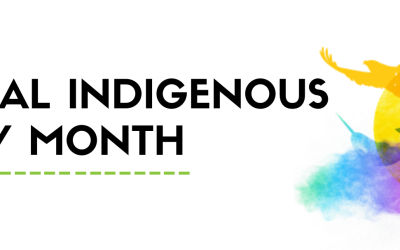Winnipeg/Vancouver– The Frontier Centre for Public Policy today released a study that evaluates the opinions of Nisga’a people on whether their life has improved or deteriorated under the 2000 Nisga’a Treaty, British Columbia’s first modern treaty settlement. The study is co-authored by Frontier’s policy analyst Joseph Quesnel and COMPAS president Conrad Winn.
In this study, the Frontier Centre commissioned COMPAS Inc. to conduct a computer-assisted quantitative phone survey sample of Nisga’a residents to determine their opinions on the trustworthiness of Nisga’a governments, honesty in spending and hiring, the degree of public consultation, and the quality of health and education services. The survey also included members of the nearby Tsimshian First Nation, who are not self-governing, as a comparative or control group. The survey sample involved 121 Nisga’a respondents from all of the four Nisga’a villages, and 26 Tsimshian from two communities. The in-depth ‘key informant’ qualitative sample involved 15 Nisga’a and 15 Tsimshian.
The Frontier Centre policy series, The Nisga’a Treaty, Self-Government, and Good Governance-The Jury is Still Out, reveals a mixed picture of governance and services on the Nisga’a territory.
The Nisga’a Treaty came into effect in 2000. It gave the Nisga’a government some significant law making powers, including paramount rights in areas such as education, health services, and membership in the Nisga’a Nation. Significantly, the treaty provided the Nisga’a with the powers to control their economic development, including rights to land and resources, up to and including sub-surface rights.
After 10 years, however, how and whether these powers have translated into improvements for the Nisga’a has become a question of critical importance given that some view Nisga’a self-government as the model for other First Nations.
"The Nisga’a example should teach other First Nations that Aboriginal self- government in and of itself is not an overnight solution that will erase all problems,” notes Quesnel.
“However, gaining jurisdictional power to take control over their destiny should be the first step toward improving conditions. The Nisga’a are on their way, but they have a long way to go.”
The study reveals the following qualitative results:
• The Nisga’a respondents have a higher sense of trust in the Nisga’a government and perceive it to be more honest in hiring and spending;
• The Nisga’a respondents, as opposed to the Tsimshian control group, believe education and health services have improved since the treaty;
However, the results also highlight areas of concern and room for improvement:
• The Nisga’a respondents think that consultation of the people had declined since the treaty’s enactment;
• Nisga’a respondents believe that economic development has not produced results and think that their economic situation has not improved.
What is also interesting is the discrepancy between the quantitative survey results and the interviews with key Nisga’a informants. On governance issues especially, they view their reality as more nuanced and believe that there are significant governance problems to overcome, including eliminating family-based voting, nepotism, transparency, and politicized service delivery.
“Critically, the Nisga’a also think that their government(s) have not delivered on economic development. Their standard of living as measured by personal income has declined. Clearly, despite self-government, governments need to make good on accountability to their citizens and provide the means for prosperity,” says Quesnel.
“As time goes on, it will be worthwhile to see if the Nisga’a Lisims Government and the village governments can deliver these.”
By convention, the findings from Nisga’a respondents are deemed accurate to within approximately 8 percentage points 19 times out of 20.
The Frontier Centre policy series, The Nisga’a Treaty, Self-Government, and Good Governance-The Jury is Still Out can be downloaded HERE.
For more information and to arrange an interview with the study's author, media (only) should contact:
Joseph Quesnel
403-381-0342
Conrad Winn


